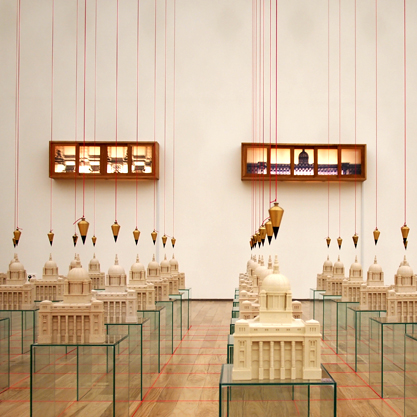Spending the month with thought-inspiring and relaxing suggestions
Album: 28
The recommendable album for this month is “28” by Oksang Dalbit(moonlight on the rooftop). Ever since its first debut in 2010, this singer-songwriting folk duo has received constant love and attention from young listeners and even critics. The duo was evaluated as musicians who can delicately express the sensibility of the youth. Their hit songs include “Moonlight On The Rooftop” and “Cocktail Love”, which were also used as theme songs of several dramas such as “I Need Romance” or “Pasta”.
For those who are suffering a heavy mental breakdown due to rushing assignments and mid-term papers, Oksang Dalbit presents a healing potion with their album “28”. The lyrics of the title song, “Not Having Is Merit” express the joy of being problem-free, with the steady sound of piano and the singers’ calm voices rendering one to forget all worries. Another song of the album, “Good Work Today” encourages listeners to go for another day by comforting them with sweet sound and touching lyrics that no matter what, there would always be someone on their side. Feeling depressed? You could try refreshing your fatigued mind with “28”!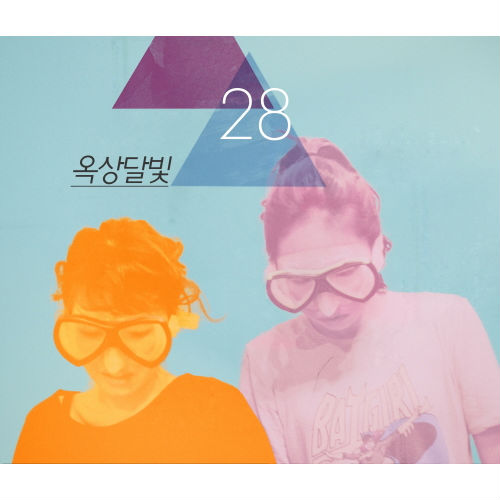
Movie: Felon
Looking for a movie that would both alleviate your stress and give you something to ponder upon? Then “Felon” is just the right choice! It is a film released on 2008, and is based on events that took place in the 1990s at the notorious Corcoran State Prison.
Wade Porter is living happily with his girlfriend Laura and their son Michael. However, their lives shatter when Wade unintentionally kills a burglar who had broken into their house. He is tried for murder, and is sentenced to three years in Corcoran State Prison. The commanding officer of the prison, Lieutenant Jackson, enjoys watching prisoners kill each other off, and he harasses Wade whenever he refuses to fight his inmates. For the sake of his survival, Wade joins the Aryan Brotherhood and is ordered to do all the dirty work. As he adapts himself to violence, Wade’s mind turns into that of a criminal, feeling less and less guilt over his actions.
The film portrays an ironical situation in which the system that exists to dispense justice aids in the promotion of unjust acts. Through “Felon”, one can see that the concept “justice” is two sides of a coin, and that the criteria that distinguish “good” and “bad” can also be very subjective. Try judging Wade with your own definition of justice!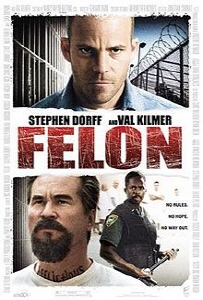
TV program: The Choice of Global Leaders
We hear the word “global leader” all the time, but not many of us understand what it takes to be one. After watching the documentary film, “The Choice of Global Leaders”, which was aired on KBS1 from January 1st to 3rd, you would at least get a grasp of what kind of people they are, if not get a clear answer on how to be one. In this documentary film, the lives of three prominent Korean figures who achieved global success are broadcasted.
The first interviewee, Doctor Kim Ye-dong is the head of the Korea Polar Research Institute. He is currently in charge of the construction of Jang Bogo Antarctic Research Station, and desires to contribute to the development of Korea by securing the natural resources of Antarctica. The message he gives is clear: Where there is a will, there is a way. The second interviewee, Kang Kyung-wha is the Deputy Emergency Relief Coordinator in the United Nations Office for the Coordination of Humanitarian Affairs. Her endeavors to eradicate sexual discrimination throughout the world and provide financial aid to African people suffering from poverty and civil war are already well known to Korean youths. She advises them to find the field they could devote themselves into. The last interviewee, Ji Young-suk is the CEO of Elsevier, a world-class academic publishing company. He has been acknowledged by numerous eminent figures as the forerunner of global knowledge industry. He recommends not to reject changes, but to accept and manipulate them for the benefit of mankind. This film would be a milestone for students craving to know the genuine meaning of global leader, and what it takes to be one.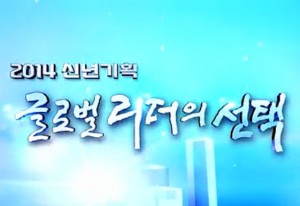
Book: The Trial
“The Trial” is a novel written by Franz Kafka, one of the most prestigious writers in the world. The book was published after his death in 1925, but was never completed. As you read down the book, you will find an abrupt empty part in the middle of the story, which shows its incompletion. The reason for this abrupt vacancy is yet unknown, but ironically, such vacancy makes the message that the book is trying to convey clearer.
In “The Trial”, the main character of the novel, Joseph K. is arrested and prosecuted by a remote, inaccessible authority, and he does not know what he is being prosecuted of. Dubious about his situation, he affords himself a lawyer, who shows no effort to help K. prove his innocence. Consumed with worry over his case, K. dismisses his lawyer, and attempts to solve the case by himself. Nevertheless, he eventually receives a death penalty, and is murdered by the executioners.
This book shows a serious danger that modern bureaucracy embraces. Through the novel, one can see that under bureaucracy, people can take any action without a sense of guilt, and that it may not be the most effective means to govern a society, in contrast to the common belief.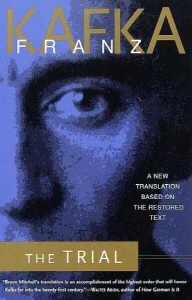
Exhibition: Zeitgeist
“Zeitgeist” is a German word, which refers to the intellectual fashion or dominant school of thought that typifies and influences the culture of a particular period in time. In the National Museum of Modern and Contemporary Art, Seoul branch, you can visit such “zeitgeist” of modern and contemporary Korean art in the exhibition.
For those who have no knowledge on modern Korean art, this is a perfect opportunity to thoroughly appreciate it in three different versions. In the first section, virtual artworks which portray the reality of the era with an objective viewpoint are displayed. In the second section, conceptual art pieces depict the 20th and 21st century Korea subjectively and abstractly. The last part of the exhibition features material arts, which seem three-dimensional at the first sight, but are actually made up of two-dimensional objects. By appreciating modern and contemporary Korean art through the three contextual categories, visitors would be able to feel the “zeitgeist” of past 100 years in objective, abstract, and dimensional ways.